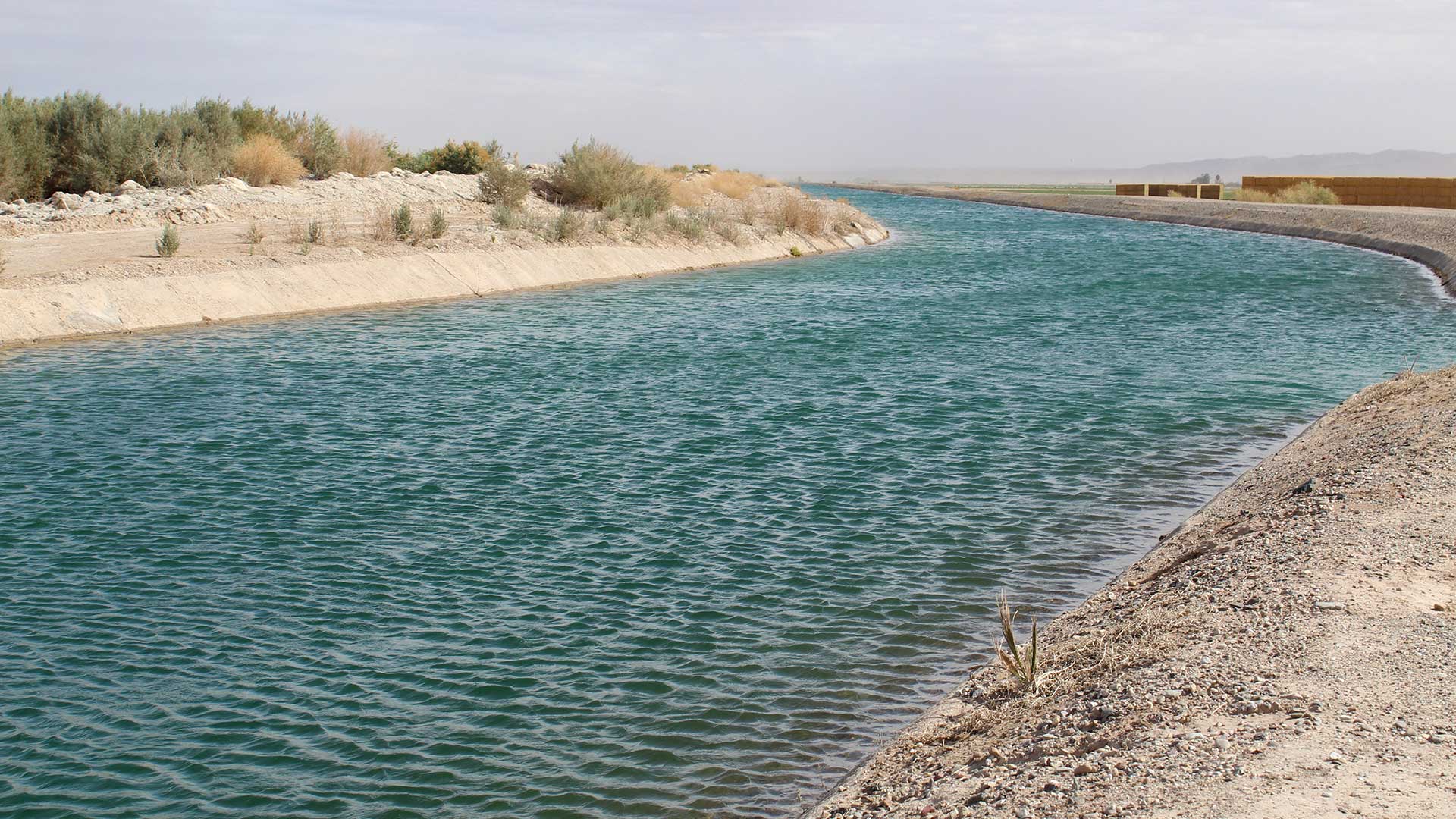 A canal carries Colorado River water to farmland near Poston, Arizona, owned and operated by the Colorado River Indian Tribes, a key player in Arizona's Drought Contingency Plan.
A canal carries Colorado River water to farmland near Poston, Arizona, owned and operated by the Colorado River Indian Tribes, a key player in Arizona's Drought Contingency Plan.
Governor Kate Hobbs has joined Arizona’s Northern tribes to sign the largest tribal water settlement in United States history.
“This is a historic moment for the State of Arizona, Tribal nations, and all parties to these agreements,” Hobbs said. “They create a consequential and lasting impact by securing a sustainable water supply for tens of thousands of Arizonans and helping local economies thrive. I’m proud to be a part of this solution that many Arizona families have fought to get for generations.”
The signing of two historic agreements–the Northeastern Arizona and Yavapai-Apache tribal settlements–will settle outstanding tribal water rights claims to Colorado River water as well as groundwater sources in Northeastern Arizona. Right now, nearly a third of the Navajo Nation does not have access to running water. The agreement would pave the way for funding to be used to divert Colorado River water to these areas.
“I want to thank Governor Hobbs for her leadership in helping us reach this historic agreement. I also want to thank the team at the Arizona Department of Water Resources for all of their work,” Navajo Nation President Buu Nygren said. “With their help, I'm confident we can build a consensus with the seven basin states to get this through Congress.”
The agreement also ratifies a treaty that gives the San Juan Southern Paiute Tribe land for a reservation whereas before they have shared land with the Navajo Nation for 160 years. In an interview with AZPM News back in August, the President of the tribe, Robbin Preston Jr., said their inability to build needed infrastructure due to the lack of a federally designated reservation has affected tribal members’ ability to stay home.
“We have tribal members who had to move out of state, either to California, Utah... and that has a lot to do with not having the opportunities that so many people have, like housing, education, health services, and employment,” Preston said. “With this settlement and the establishment of our reservation, it gives them the opportunity to say, ‘Maybe I do want to go home. Maybe I want to bring what I've learned outside of Indian country back for the betterment of our tribe.’”
But, in order for the treaties to become effective, Congress will need to approve the settlements and funding for the water projects. They only have until the final adjournment of this Congress. Currently, the United States House of Representatives does not have meetings scheduled after December 19th. With a $5 billion price tag, some are skeptical about whether it can be accomplished.

By submitting your comments, you hereby give AZPM the right to post your comments and potentially use them in any other form of media operated by this institution.